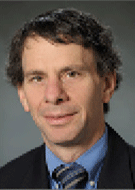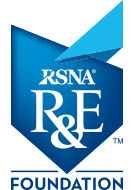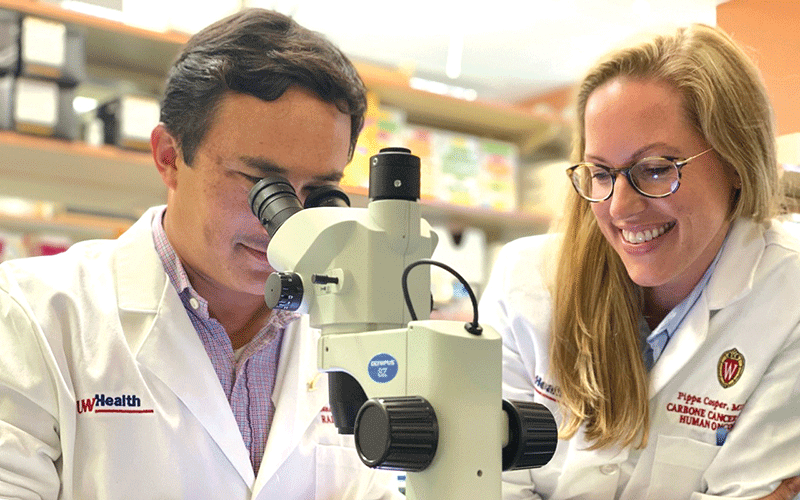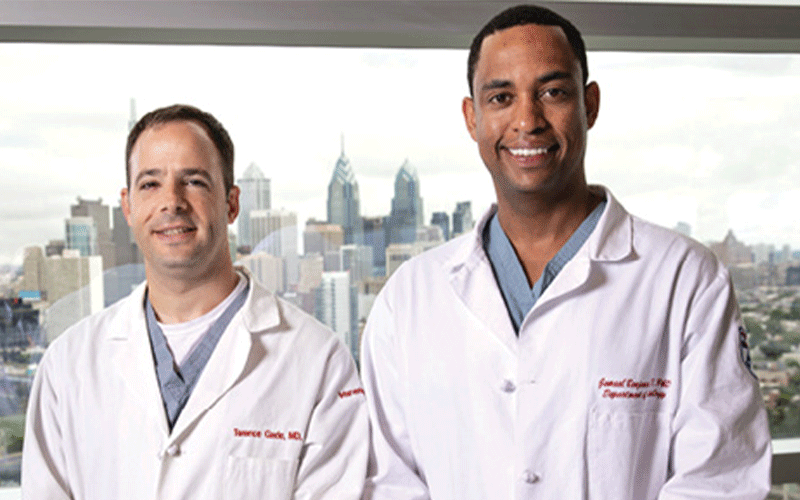Mentors Help Launch, Guide Careers of R&E Research Scholars
New RSNA program aims to further foster mentor/mentee relationships


As any number of RSNA Research Scholar Grant recipients can attest, a good mentor can have a dramatic impact on the career of a radiology researcher venturing into a new field.
While RSNA has long fostered those mentor/mentee relationships through its R&E Foundation, building on those valuable connections is the impetus behind a new program recently launched by the RSNA R&E Foundation Board of Trustees.
Spearheaded by Mitchell D. Schnall, MD, PhD, Board liaison to the R&E Grant Program Committee, the pilot program will tap the expertise of past R&E research scholars and create a connected community of radiology researchers.
“Scientific advisors are typically someone from the scholar’s department,” said Dr. Schnall, the Eugene P. Pendergrass Professor of Radiology and the chair of the Department of Radiology at the Perelman School of Medicine at the University of Pennsylvania in Philadelphia. “Pairing scholars with an additional mentor from another department or institution will offer a different perspective and ideally turn these researchers into stronger investigators.”
Set to roll out this fall, the program will begin by identifying RSNA research scholars from the last 10 years who would like to serve as mentors. Those mentors will then be matched to 2021 RSNA research scholars in the same specialty.
Over the two-year grant period, the mentor/scholar pairs will meet in person at the RSNA annual meeting and connect remotely twice per year and by email as needed.
“Very few institutions have a critical mass of clinician researchers in any given specialty to serve as mentors for junior faculty,” Dr. Schnall said. “This program will be a force multiplier for the pool of physician scientist mentors.”
If the pilot program is successful, the program may expand to include other R&E grant recipients.
“We want to enhance the RSNA Research Scholar program to create a strong, connected community that scholars are part of, not just for two years, but for a lifetime,” Dr. Schnall said.

A Mutually Beneficial Relationship
RSNA’s role developing those critical mentor/mentee relationships begins with connecting the student and teacher. Every year, about two-thirds of R&E grant recipients are assigned a scientific advisor to help guide them through their research projects and learn the ropes of being a physician scientist.
Success stories among mentors/mentees are testament to the value of these relationships — for researcher and scientific advisor.
For 2019 RSNA Resident Research Grant recipient, Pippa Cosper, MD, PhD, her scientific advisor Randy Kimple, MD, PhD, put her on firm footing to launch her career investigating human papilloma virus- (HPV) induced cancers.
Dr. Kimple, associate professor, human oncology at the University of Wisconsin (UW), Madison, guided Dr. Cosper through her R&E research project, “Chromosomal Instability as a Potential Mechanism and Marker of Radiation Sensitivity in Head and Neck and Cervical Cancers.”
The project established a foundation for Dr. Cosper’s ongoing work as the second Bentson Translational Research Fellow at the UW School of Medicine and Public Health.
“The fact that Dr. Kimple is both an MD and a PhD in the field of radiation oncology and has taken every step in his career that I will take in mine is so important,” Dr. Cosper said. “He helps me understand how to balance a clinical and research career.”
Dr. Kimple said the relationship has been mutually beneficial. “Mentoring Pippa is a real joy because she’s super excited about the science she’s doing, she’s committed to her career trajectory and she wants to improve every step of the way,” Dr. Kimple said. “It makes mentoring her incredibly easy.”
Dr. Cosper is studying HPV-induced cervical and head and neck cancers, specifically how the virus affects chromosomal instability and how this impacts sensitivity to radiation therapy and the anti-tumoral immune response.
“My ultimate goal is to be an independent investigator with my own laboratory that focuses on HPV-induced cancers, while caring for patients afflicted with this disease,” Dr. Cosper said.
Having Dr. Kimple as her scientific advisor has laid the foundation to pursue that career direction. Dr. Kimple possesses all the qualities of a great mentor, including being generous with his time, she added.
“He’s so approachable and he wants to see you excel, whether you’re an undergraduate student or a fellow,” Dr. Cosper said. “He’s given me so many opportunities to advance my career and advocates for me every step of the way.”
Although mentoring physician trainees is part of his professional responsibilities, it is also a passion for Dr. Kimple, who continues to mentor Dr. Cosper through her radiation oncology fellowship. He advises junior scientists to find one mentor in their laboratory setting and a second mentor who provides career guidance.
“Many of us in the sciences don’t have a family member we’ve followed into the field who can tell us what steps to take. You need someone to guide you through the process,” he said. “Trainees who have an involved and dedicated mentor are more likely to submit papers, to get grants and to speak at conferences.”

Hands-On Mentorship Boosts Learning
Occasionally, a strong mentor/mentee relationship extends far beyond one project or study.
In 2016, as a first-year diagnostic radiology resident at the University of Pennsylvania (UPenn), Philadelphia, Jamaal Benjamin, MD, PhD, began a mentoring relationship with Terence Gade, MD, PhD, that continues to guide his vascular/interventional radiology fellowship at the university.
As he began to focus his research on the tumor microenvironment of hepatocellular carcinoma (HCC), Dr. Benjamin, a 2019 RSNA Research Resident, relied on the expertise of Dr. Gade, assistant professor of radiology at UPenn, in the Penn Image-Guided Interventions Laboratory and interventional radiology suites. Dr. Gade supervised Dr. Benjamin’s R&E research project, “Leveraging Epigenetic Alterations to the Tumor Microenvironment to Potentiate the Endogenous Immune Response in HCC.”
Dr. Benjamin said that having that hands-on mentorship from a physician scientist who is also an interventional radiologist has had an immeasurable impact on his career. “It is through our longitudinal relationship that I’ve really benefited from all aspects of mentorship,” Dr. Benjamin said. “From asking questions as diverse the best approach for a liver biopsy to understanding the methods hepatocellular cancer cells to avoid post-treatment death, I’ve benefited from his scientific guidance while also learning how to take clinical questions to the lab.”
Dr. Gade says it is gratifying to watch the field of interventional radiology evolve before his eyes through scholars like Dr. Benjamin. “Jamaal has a keen scientific mind and a passion for translational research,” Dr. Gade said. “He does a great job of keeping an eye on the clinical problem while studying its fundamental mechanistic underpinnings.”
Working side-by-side with Dr. Gade in the UPenn laboratory has given Dr. Benjamin that hands-on experience that is so vital to research. “I was able to see what projects were ongoing in the laboratory and figure out where my skills would fit in,” Dr. Benjamin said. “Having a working lab that I could quickly integrate into without having to set up everything from scratch was critical.”
As an R&E grant recipient himself, Dr. Gade has served as an advisor to R&E grant recipients for the last five years and is happy to give back to the program that helped launch his own career.
“I’m enormously grateful for the RSNA grant program,” Dr. Gade said. “I was an RSNA Research Resident and my grant really started my career. It was instrumental in securing my first NIH grant. It’s also a big reason why I’m in academics today and why our lab has been able to grow.”
Ultimately, Dr. Benjamin aims to follow in his mentor’s footsteps and split his time between research and clinical work focusing on the biology of cancers commonly treated in the interventional radiology lab.
“The hands-on mentorship provided by Dr. Gade has crystallized in me the attributes needed for both academic and scientific achievement,” Dr. Benjamin said.
For More Information
Learn more about the R&E Foundation, go to RSNA.org/RE-Foundation.
Read previous RSNA News stories on the importance of mentorship: